 Rheumatoid arthritis: How chronic inflammation affects the brain
Rheumatoid arthritis: How chronic inflammation affects the brainYou think you can have arthritis? Learn about the four most common warning signs. Information about symptoms, health habits and lifestyle will help determine the type of arthritis you have. Follow these eight habits of self-management to help you take control of your arthritis. Learn more about treatment goals for inflammatory arthritis, which includes both pain management and prevention of joint and organic damage. Learn eight ways to relieve symptoms of arthritis in addition to medication. Read these 10 tips on managing and reducing arthritis care costs. Learn what foods from the Mediterranean diet can help combat inflammation caused by arthritis. Free selling painkillers (OTC) are easy to buy but can cause damage when not taken as indicated. Try your knowledge about taking acetaminophen and nonsteroidal anti-inflammatory drugs (NSAIDs). Having a chronic disease such as arthritis affects many aspects of daily life and can cause stress. Learn how to cope with stress strategies. Take action today - use the resources here to learn who your elected officials are, what opportunities we have to defend from the comfort of your own home, federal and state legislation, and more! Share your experience in a 10-minute evaluation to be among those who change the future of arthritis. You may have arthritis, but it doesn't have you. The unique podcast of the Arthritis Foundation. Stayed by patients, for patients. Effect of the RA on the effect of the cerebral AR on the brain Learn about the possible links between rheumatoid arthritis and cognitive effects and how to manage them. By Linda Rath Many people with rheumatoid arthritis (RA) report that they have problems with memory, attention and mental focus. They forget names and appointments, they struggle to find the right words and have trouble making and carrying out plans. Some say that the loss of mental clarity, commonly called a fog of the brain, is almost as disturbing as arthritis itself. Limited Research It is difficult to say exactly how common blurry thinking is in the RA because researchers have largely ignored it. "We have a relatively good literature on cognitive problems in lupus and fibromyalgia, where the brain fog is well established, but no one has actually studied the RA," explains Patti Katz, doctor, professor of medicine at the University of California, San Francisco. Katz and her colleagues examined 15 RA and cognition studies published between 1994 and 2016. Many were small – less than 100 patients – and not all were of high quality. However, most showed that people with rheumatoid arthritis performed more badly in cognitive tests than their peers or controls. Memory, verbal communication, attention, concentration and problem solving seemed to cause the greatest problem. Who has it and why? There are several theories by which cognitive provings can be more common in the RA and other inflammatory types of arthritis. Some scientists, including Mark Swain, MD, professor at the University of Calgary in Canada, think that inflammation exceeds the list. Over a decade ago, he and his colleagues showed that chronic inflammation in the body – the result of cytokines as the tumor necrosis factor (TNF) – can change the way the brain works. The brain does not change structurally, but nerve networks begin to speak to each other differently. This can contribute to many symptoms associated with the disease, including brain fog. Swedish researchers came to the same conclusion after having reduced to about 1,500 patients with various joint disorders for two decades. They found a significantly higher rate of cognitive decline in those with the RA and suggested that chronic inflammation "played an important role in increasing risk." But Katz thinks it might not be that simple. "The RA is a disease that has many elements, and we need to think of them all because people are very complicated," he says. Some factors that can contribute to brain fog include:• Pain. It is well known that chronic pain can affect thought. Some of the brain pain processing centers overlap with areas involved in memory and attention. When competing for limited processing resources, pain often gains. Pain can also relive how the brain works.• Depression. Depression is common in the RA. Symptoms may include problems with planning, decision-making, memory and mental clarity, the same symptoms reported by people with brain fog. Katz says that one of the challenges of studying cognitive problems is the difficulty of distinguishing them from depression. Some researchers – although not Katz – see the fog of the brain as a symptom of depression, not a separate condition.• Cardiovascular disease. People with RA are more likely to have narrow or blocked arteries in the brain, the result of systemic inflammation. This can cause problems with memory, thought and reasoning.• Arthritis drugs. Methhotrexate is a pillar of RA treatment and corticosteroids are sometimes used to relieve short-term pain. Both can cause cognitive problems, mood changes and confusion. A small study published in Toxicology and Applied Pharmacology in 2017 found that RA patients treated with metotrexate and other conventional anti-heumatic drugs (DMARDs) were at greater risk of developing dementia than those who took other medications. Moderate to high doses of corticosteroids can cause cognitive problems in some people, more commonly women.• Lack of exercise. Few things have a stronger bond demonstrated with brain health than exercise. Thousands of studies show long-term benefits, but new research suggests that exercise can also have an immediate effect. Carson Smith, MD and colleagues at the University of Maryland School of Public Health found that the memory of older adults improved significantly after a 30-minute exercise session. A French study found that only a 15-minute hug increased energy and mental clarity. What CDCEn 2017 says, researchers from Centers for Disease Control and Prevention (CDC) published a study that compares cognition in more than 6,000 people with and without arthritis. Unlike previous studies, minors found no difference in the brain function between the two groups. Researchers say they had different results because they considered pain, depression, lack of exercise, age and other factors linked to the fog of the brain and RA. Once these were counted, people with RA showed no more cognitive problems than other older adults. What was associated with elements of the impaired brain function was a sedentary lifestyle, depression and a lower socioeconomic level. The implication is that the RA itself does not cause brain fog, but the factors associated with it can. Objective of several risk factors If cognitive problems are complex, the solution also needs to be complex. That is the thought behind an innovative clinical trial in Finland called FINGER. In this two-year controlled trial involving more than 1,200 older adults with a high risk of dementia, lifestyle changes including an anti-inflammatory diet, exercise and brain training reduce the cognitive decline by 30%. The goal of several risk factors will provide optimal benefits. Here are some tips that can help you keep your brain sharp:• Sleep well. Deep and restorative sleep helps to clean the webs. Develop a healthy sleep routine and cling to it. Make sure your bedroom is cool and dark, avoid the last-minute caffeine and turn off screens at least an hour before bed.• Talk to your doctor about medicines. If you take conventional DMARDs or long-term corticosteroids, discuss the pros and cons of switching to another medication. Talk about your other medications too. Some, including anti-cholinergics (used to treat hyperactive bladder, COPD and other conditions) can also cause brain fog.• Don't skip training. There's hardly any exercise. It doesn't help. Pain, mobility, mood, fatigue and mental clarity can all be improved in a single session, but the greatest benefits occur over time.• Look at brain fog patterns. Your symptoms may be worse in the morning or when you are tired or stressed. Try to schedule tasks that require attention and attention when you are at your best.• Be present. It is easy to worry about the future, in social terms when you have a chronic disease. But the concern for things that have not happened still occupies a valuable mental space. Instead, concentrate at the present time, says Ashira Blazer, MD, rheumatologist and assistant professor at NYU Langone Health in New YorkBottomline, if having RA contributes directly to cognitive impairment or not, following a healthy lifestyle and keeping your disease under control can help keep your brain fog at bay. Rheumatoid Arthritis Rheumatoid Get the latest news and tips about living with rheumatoid arthritis in the life of your yes! e-newsletter. Donate Each gift to the Arthritis Foundation will help people with arthritis throughout the United States to live their best lives. Volunteers Join us and become Champion of Yes. There are many volunteer opportunities available. Yes! INSIGHTSTake part to be among those changing lives today and changing the future of arthritis. PartnerProud Partners of the Arthritis Foundation are committed annually to directly supporting the Foundation's mission. DonateWays to GiveEvery gift to the Arthritis Foundation will help people with arthritis across the U.S. live their best life. Whether you're supporting cutting-edge research, 24-hour access to individual support, resources and tools for daily life, and more, your gift will be the change of life. It helps millions of people to live with less pain and finance innovative research to discover a cure for this devastating disease. Please make your urgent donation to the Arthritis Foundation now! Become a member of the Arthritis Foundation today for only $20 and you will receive access to useful tools... and more. Honor a loved one with a significant donation to the Arthritis Foundation. We will send a handwritten letter to the honorary or to his family by noting them of their reflective gift. I want information on ways to remember the AF in my will, confidence or other financial planning vehicles. Other ways of giving volunteer opportunities The Arthritis Foundation focuses on finding a cure and defending the fight against arthritis with information that changes life, defense, science and community. We can only achieve these goals with your help. Strong, frank and committed volunteers will help us conquer arthritis. By getting involved, you become a leader in our organization and help make a difference in the lives of millions. Join us and become Champion of Yes. More about VolunteeringLive Yes! Just 10 minutes. Tell us what matters most. Change the future of arthritis. As part of Life Yes! INSIGHTS Assessment, you will be among those who change their lives today and change the future of arthritis, for yourself and for 54 million others. And all you need is just 10 minutes. Your shared experiences will help: - Driving more effective treatments and results - Develop programs to meet the needs of you and your community - Form a powerful agenda that fights for you Now is the time to make your voice tell, for you and the entire arthritis community. Currently this program is for the community of adult arthritis. Since the needs of the youth arthritis community (JA) are unique, we are currently working with experts to develop a personalized experience for JA families. How are you changing the future? By sharing your experience, you are showing to decision makers the realities of living with arthritis, paving the way for change. You are helping to break barriers to attention, report research and create resources that make a difference in people's lives, including their own. PartnerMeet Our Partners As a partner, you will help the Arthritis Foundation provide resources that change life, science, defense and community connections for people with arthritis, the nations that lead the cause of disability. Join today and help lead the road as a Champion of Yes. Our Trailblazers are committed partners ready to lead the road, take action and fight for everyday victories. Contribute $2 million to $2,749,000 Our Visionary Partners help us plan a future that includes a cure for arthritis. These inspiring and inventive champions have contributed $1.500.00 to $1.99.999. Our Pioneers are always ready to explore and find new weapons in the fight against arthritis. They contribute $1,000,000 to $1,499,999. Our Pacesetters ensure that we can trace the course for a cure for those living with arthritis. They contribute $500,000 to $999,000. Our Signature partners brand their brand by helping us identify new and significant resources for people with arthritis. They contribute $250,000 to $499,999. Our support partners are active champions that provide encouragement and assistance to the arthritis community. They contribute $100,000 to $24,999. More about partnerships
9.17.18 9:36AM9.17.18 9:36AMYou can relieve inflammatory arthritis Brain seal with these 12 tips for a sharp mindLearn how brain fog feels in people living with inflammatory arthritis. Also, look for advice on what you can do to sharpen your thinking. Stupidity, swelling, and pain can be the distinctive symptoms of inflammatory arthritis such as rheumatoid arthritis, but many people with AR, psoriatic arthritis, ankylosing spondylitis, and other types of inflammatory arthritis do not expect to find oblivion and problem thinking that often accompany these diseases. With autoimmune diseases such as these, your immune system begins to attack your own body. Normally, people with RA and PsA feel that inflammation looms in their joints, where their body cells attack their own tissue, but constant inflammation can also affect other parts of the body. Experts have not marked the exact link between arthritis and cognitive problems, but suspect that the proteins released by the immune system called cytokines could be a factor, says Ashira Blazer, MD, a NYU Langone Health rheumatologist in New York City. When immune bengalls release cytokines, they send signals into your brain that get in the way of your normal functioning, and you feel like brain fog arthritis. In addition to all that, chronic pain of these diseases makes the entire nervous system more sensitive, says John Davis III, MD, a rheumatologist with Mayo Clinic in Rochester, Minnesota. Especially when your arthritis is extra active, it can cause a domino effect that affects your entire body. "The levels of inflammation can be high, and that can contribute to pain, fatigue and sleep disturbance, and that could contribute to fog," says Dr. Davis. What the brain neblin in inflammatory arthritis feels like As your arthritis dazzles, it may have problems concentrating. You forget important meetings. You lose the train of thought. You can't find the words you're looking for. As if that wasn't frustrating enough, other people's reactions can get worse. "The looks that people can give you are horrible," says RA patient Vicki of San Antonio, Texas. The cognitive effects of inflammatory arthritis are difficult, but with the right strategies, it can be cut through the brain fog and help sharpen your thinking.1. Establish reminders for yourself A little planning goes a long way in the fight against brain neblin arthritis. "Sleek notes and reminders on your phone can be important," says Dr. Blazer. The key is to write *all* down when it comes to grocery lists, meeting times, and task list items. You'll be grateful later.2. Take the easy way outLess arthritis pain usually means less brain fog, so asking for help with tasks or taking breaks between tasks can relieve all your symptoms. As big as your homemade chocolate biscuits for the baseball barbecue might be, no one will beg you to pick up some of the bakery in your place, or to have your partner make your grocery store work for the ingredients in your place you chop to the store. "Make everything more manageable while it doesn't get over to the point of a flare," Dr. Davis.3. Set a sleep routine (and paste)Arthritis can snowball at night. If pain and anxiety keep you awake, you won't have the relaxing sleep your body needs, and that in turn can make you groan the next day. Cue brain fog arthritis. Extra rest with 8 to 10 hours sleep can help, says Dr. Blazer, but if you're someone who treats with arthritis painsomnia, that's easier to say than do. One of the best ways to prepare your body to sleep is to stick to the same schedule every day. Try to go to bed and wake up at the same time every day — including on weekends — recommend Dr. Davis. "That way you will have a regular rhythm about when the body sleeps," he says. If you usually need a nap during the day, give it a designated time, too.4. Make your room a sanctuary You may need to change your habits while training your body in your new sleep routines. Reading and watching TV in bed seem relaxing, but they could actually work against it, says Dr. Blazer. That trains your brain to be awake at the place where you should be sleeping," he says. It happens with a book in the living room, he suggests. That way, your body knows it's time to sleep with the fog of the brain at the time you crawl under the decks.5. Ask your doctor about changing medications Most of the time, your recommended medication will help the fog of the brain by relieving the rest of the symptoms of arthritis. But from time to time, steroid-based drugs such as prednisone can cause side effects such as brain fog, anxiety, and insomnia, says Dr. Blazer. Do not stop taking a medication without consulting your doctor, or avoid one because of the slight risk of unpleasant side effects, but be aware that finding the right arthritis medication may take some judgment and error. If you suspect that your medication is having a negative side effect, talk to your doctor about your options.6. Take a look at your other prescriptions Your arthritis medications are not the only drugs that could exacerbate brain fog. inflammatory arthritis increases the risk of heart problems, so you may be seeing your cholesterol in addition to your joints. Brain fog can also be a side effect of statins that lower cholesterol. Make sure your doctors are aware of all the medications you take while discussing whether a change in your treatment is necessary.7. Sit and listen The attendees can be double problems for the fog of the arthritis brain. Socializing can drain you, letting you lose by words when you want the most. Sometimes, listen while you wait for the fog of the brain to clear. "I've learned to stay within my own energy envelope, accept what's happening, and rest until you leave," says Maisie, a Tacoma Rheumatoid Arthritis patient, Washington. Don't be shy to excuse yourself from sitting down or going home on the early side. (Here are tips for .)8. Practice Consciousness When you have a chronic condition, it is normal to have anxiety about the future: How will your condition be tomorrow? This weekend? Ten years? Using mental care to focus on the present can help. You may notice worrying thoughts as they enter, and then let them go without biting in them. "Being able to direct attention to the moment and not taking on stressors that have not yet presented can be a good way to compartmentalize and improve their mood," says Dr. Blazer.9. Time of exercises so you don't skip them The idea of exercise can be intimidating when you are worried about joint pain and other symptoms of arthritis, but physical activity has a lot of benefits for inflammatory arthritis. Exercise can decrease inflammation, get tired to sleep a good night, and strengthen the muscles that support your joints. You'll feel better from the inside. "Improving the sense of health and well-being, and that can lead to advanced self-efficacy," says Dr. Davis. "It feels like they can control the situation." Stay with low-impact trainings like swimming and cycling, and start slowly so you don't get over yourself. 10. Consider taking a yoga class You could kill two birds with a stone using yoga as your training. "It is meditation and attention put into practice," says Dr. Blazer. 11. Calm down. When you're in a loss of words or you're having trouble concentrating, it's easy to let frustration get the best of you. Instead of being worked on your brain neblin arthritis, give yourself permission to trip. "Sometimes he just breathes deeply and starts again," says Dr. Blazer. 12. Find out your brain fog patterns Cognitive problems sometimes have a pattern, so it can be able to plan forward. For some people, the brain neblin of arthritis could be worse in the morning, when your joints are still warming; for others, your blurry mind could reach the peak while you treat with ongoing stress all day. If you can set a brain fog pattern, you could succeed by scheduling heavy concentration tasks during the time you expect your thinking to be the clearest, says Dr. Blazer. More information 3 comments Thank you very much. Excellent article. Very useful Reply Your email address will not be published. Required fields are marked with *Name*Email*Internet Quick Links Our ResourcesTerms & Conditions Download our AppStay Connect Log in / Sign up Just fill if you're not human
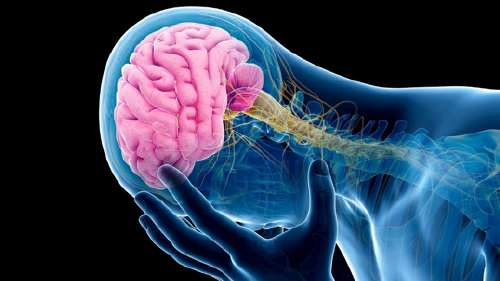
How the brain plays a role in rheumatoid arthritis inflammation - Thailand Medical News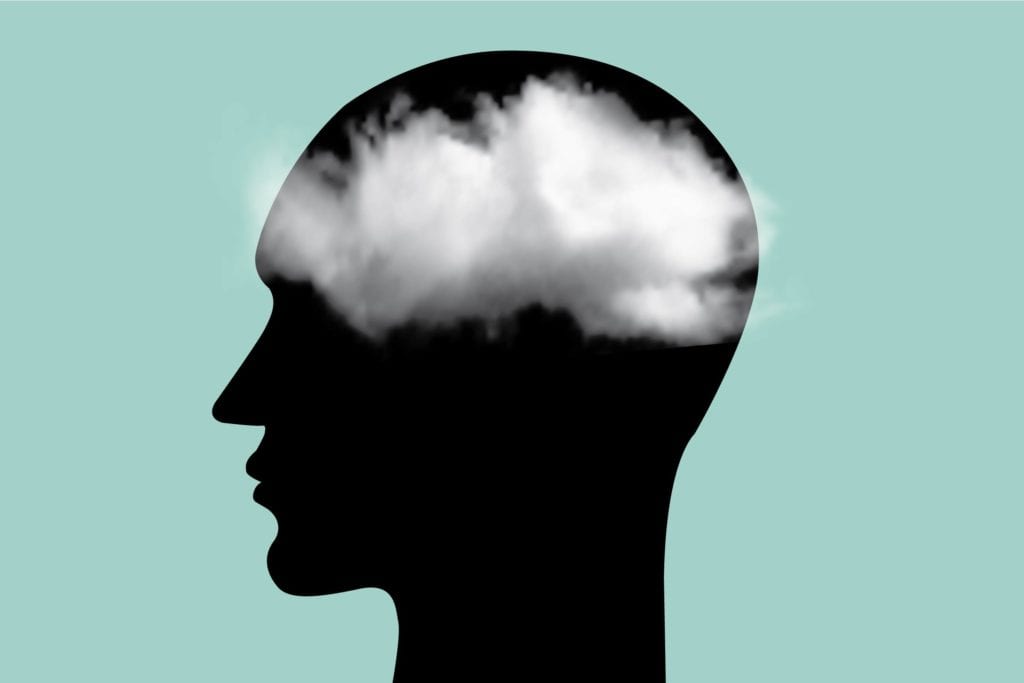
You Can Ease Inflammatory Arthritis Brain Fog with These 12 Tips for a Sharper Mind – CreakyJoints
How Brain Plays a Role in Rheumatoid Arthritis Inflammation
Brain fog and rheumatoid arthritis: What is the link?
The Link Between Rheumatoid Arthritis and Brain Fog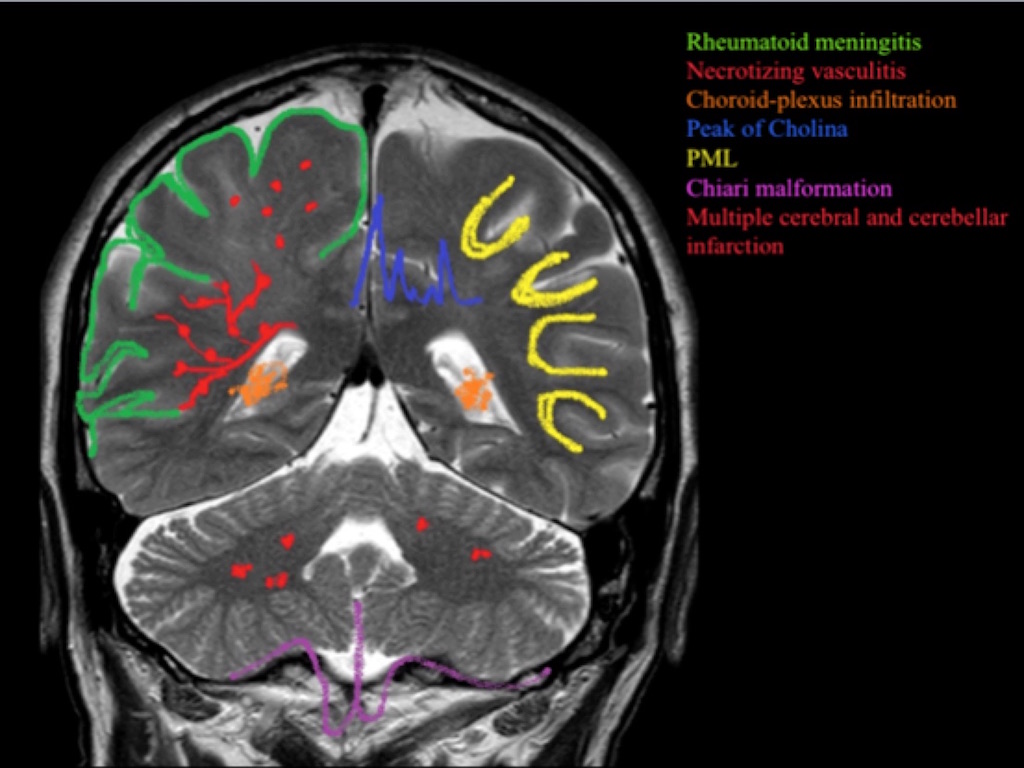
EPOS™ - C-2684
Rheumatoid Arthritis of the Cervical Spine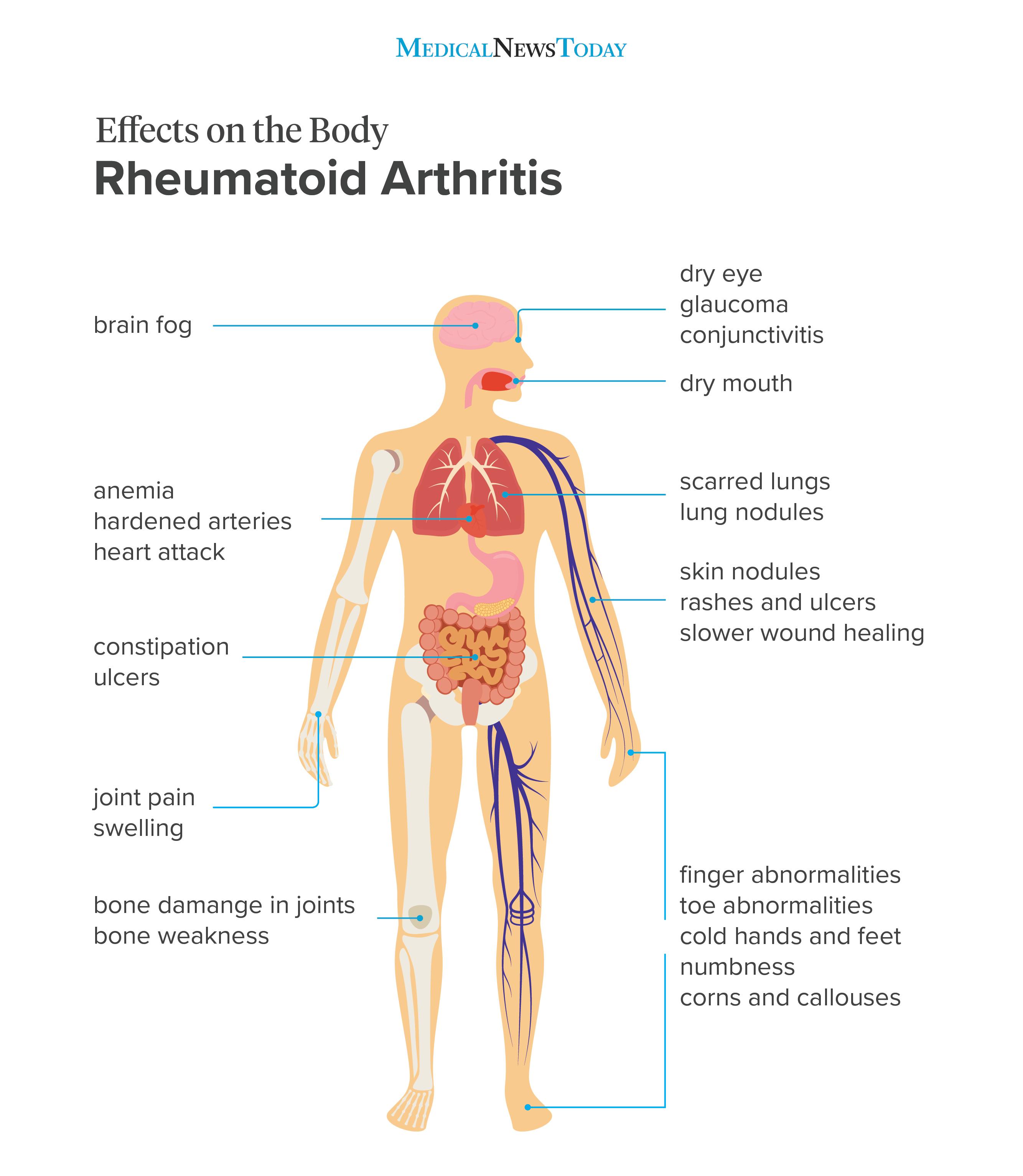
Effects of rheumatoid arthritis on the body
Rheumatoid Arthritis Brain Fog - The Rheuma Mill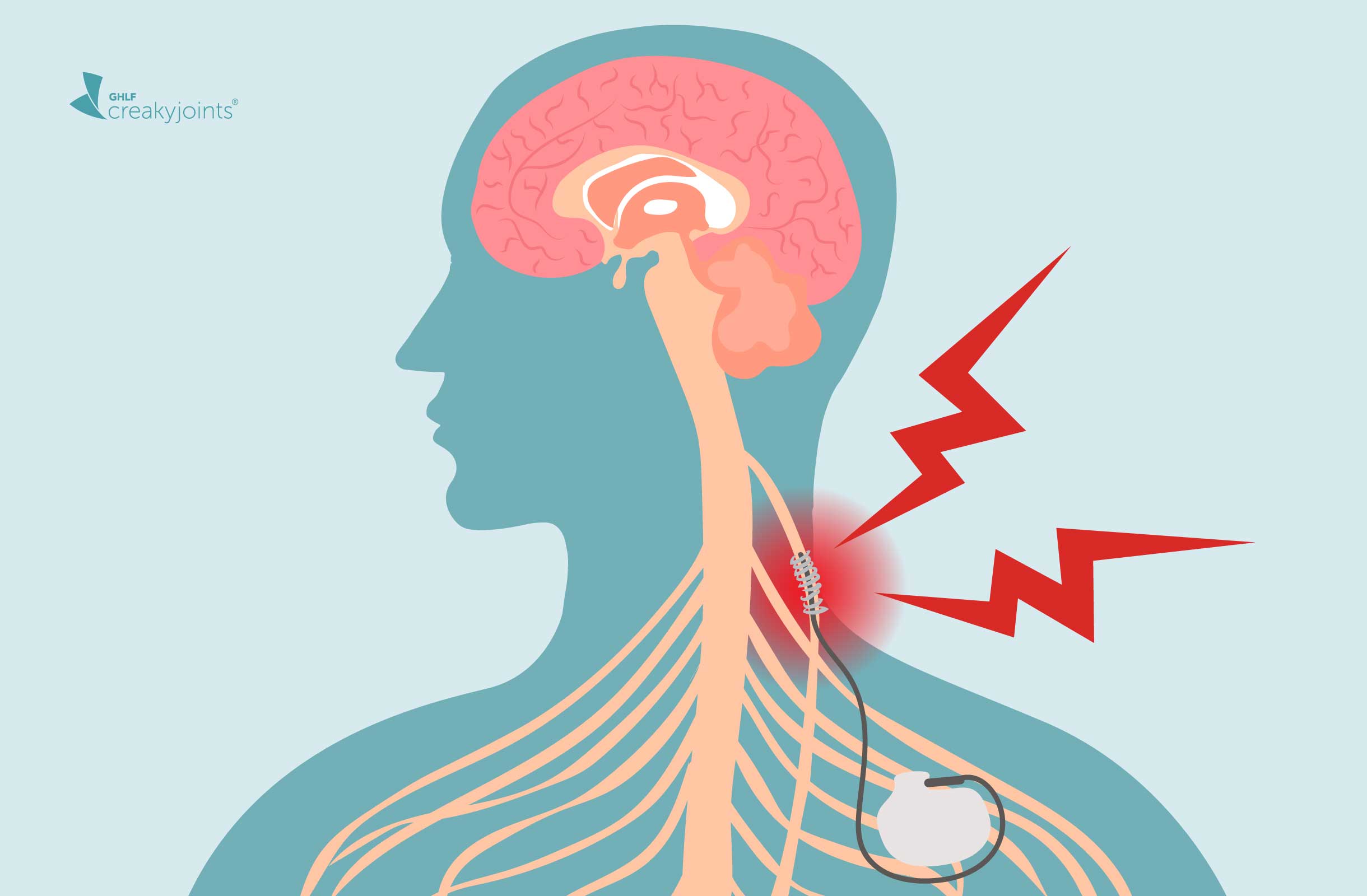
Understanding Vagus Nerve Stimulation for Rheumatoid Arthritis Treatment
How chronic inflammation in rheumatoid arthritis affects brain pre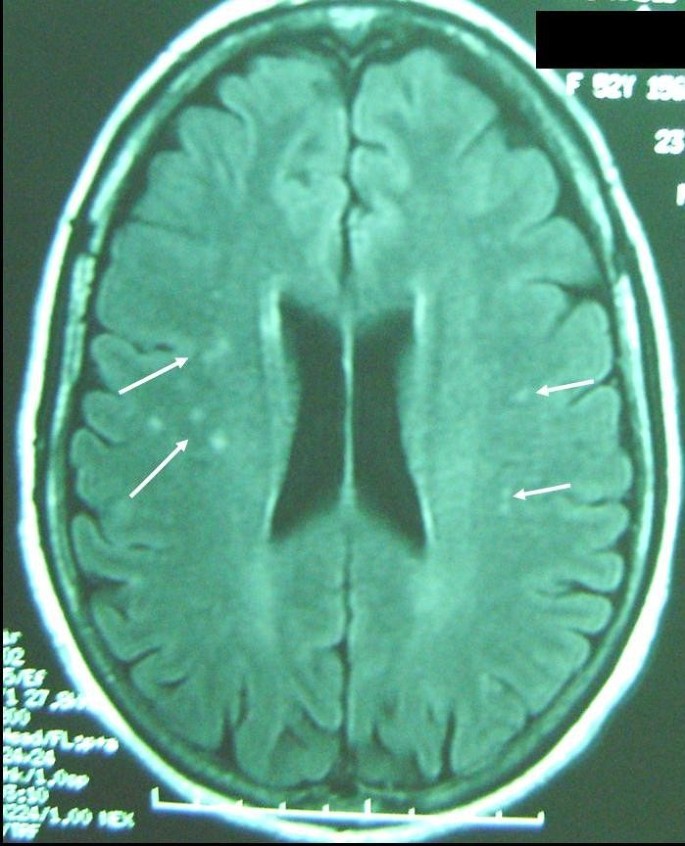
Cerebral rheumatoid vasculitis: a case report | Journal of Medical Case Reports | Full Text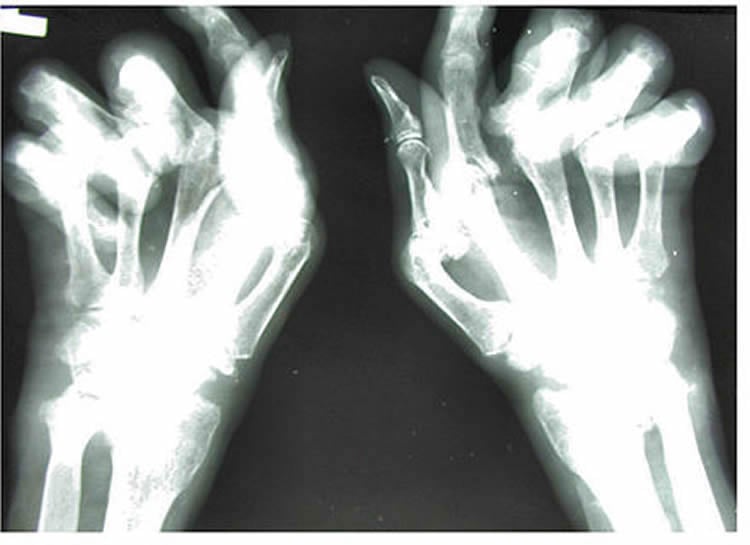
How the Brain Plays a Role in Rheumatoid Arthritis - Neuroscience News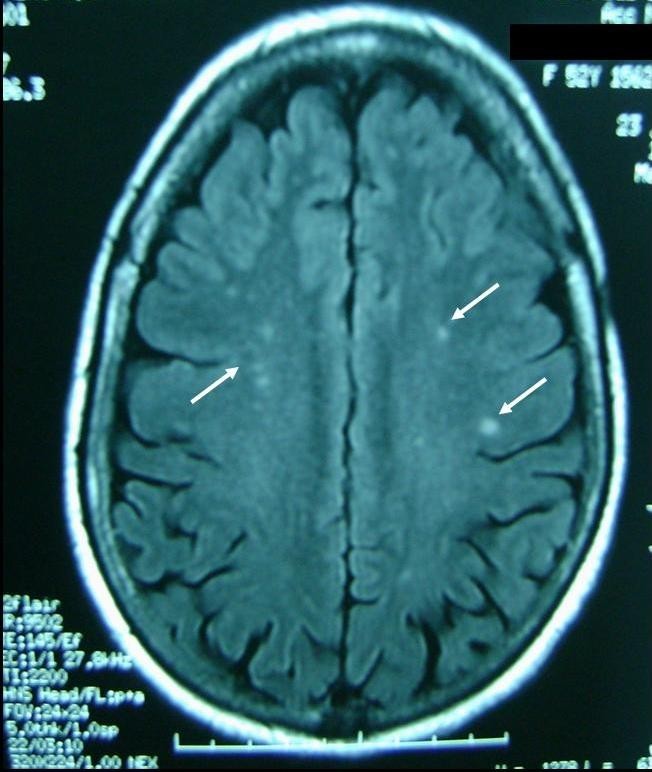
Cerebral rheumatoid vasculitis: a case report | Journal of Medical Case Reports | Full Text
Rheumatoid meningitis: a rare complication of rheumatoid arthritis | BMJ Case Reports
CNS Involvement in Rheumatoid Arthritis: An Expert Perspective - Rheumatology Advisor
Rheumatoid arthritis in the brain- a diagnosis of exclusion - ppt download
THE BRAIN OVER THE JOINTS: MRI brain findings in Rheumatoid Arthritis | Semantic Scholar
The Frustration of Brain Fog: A Rheumatoid Arthritis Patient's Perspective
How the brain plays a role in rheumatoid arthritis inflammation
Unusual Cerebral Involvement of Rheumatoid Arthritis Mimicking a Tumor | Bentham Science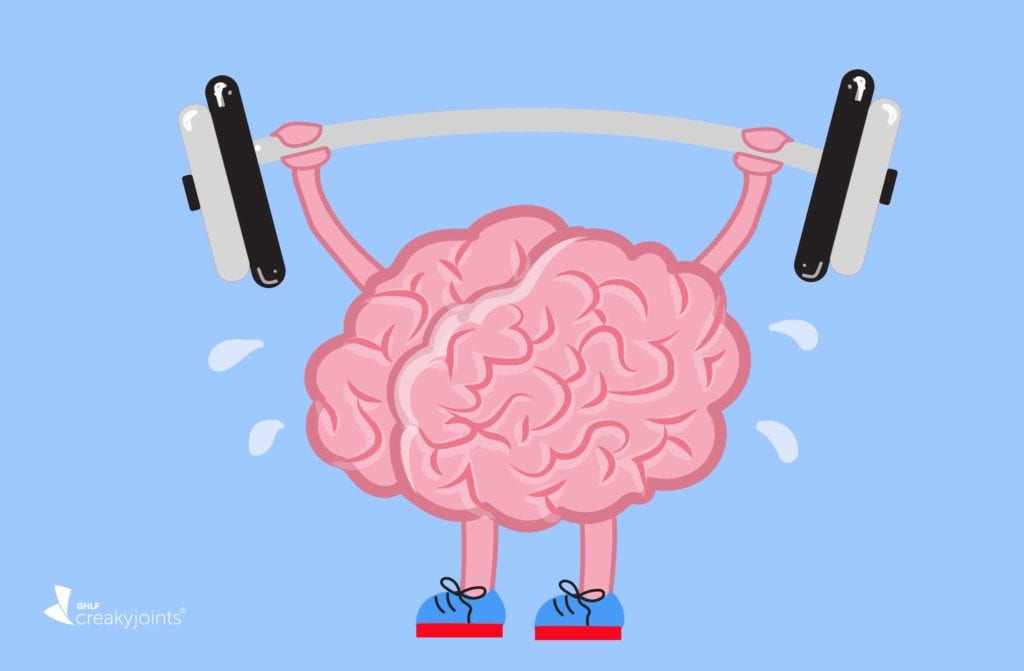
Exercise with Rheumatoid Arthritis Improves Cognition and Brain Fog
Tips For Managing Brain Fog With Psoriatic Arthritis
Brain Fog and Arthritis are More Connected than You Think - Medlife Blog: Health and Wellness Tips
Rheumatoid Arthritis autoimmune disease brain research study
Methotrexate May Decrease Risk for Ischemic Stroke in Rheumatoid Arthritis - Rheumatology Advisor
THE BRAIN OVER THE JOINTS: MRI brain findings in Rheumatoid Arthritis | Semantic Scholar
8 Surprising Ways Psoriatic Arthritis Can Affect Your Health | Everyday Health
Rheumatoid arthritis and brain fog, memory loss connection
The Link Between Brain Fog and Rheumatoid Arthritis
Rheumatoid arthritis and Alzheimer's disease, what's the connection? – The Brain Bank North West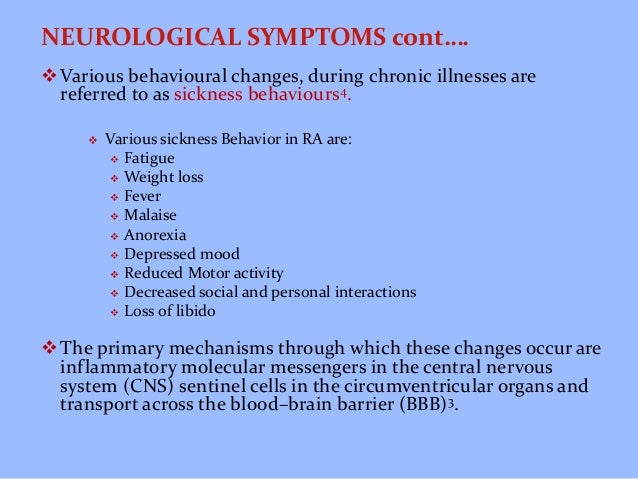
How chronic inflammation in rheumatoid arthritis affects brain pre
You Can Ease Inflammatory Arthritis Brain Fog with These 12 Tips for a Sharper Mind – CreakyJoints | Rheumatoid arthritis, Arthritis, Rheumatoid arthritis flare
Psoriatic Arthritis and Brain Fog | Everyday Health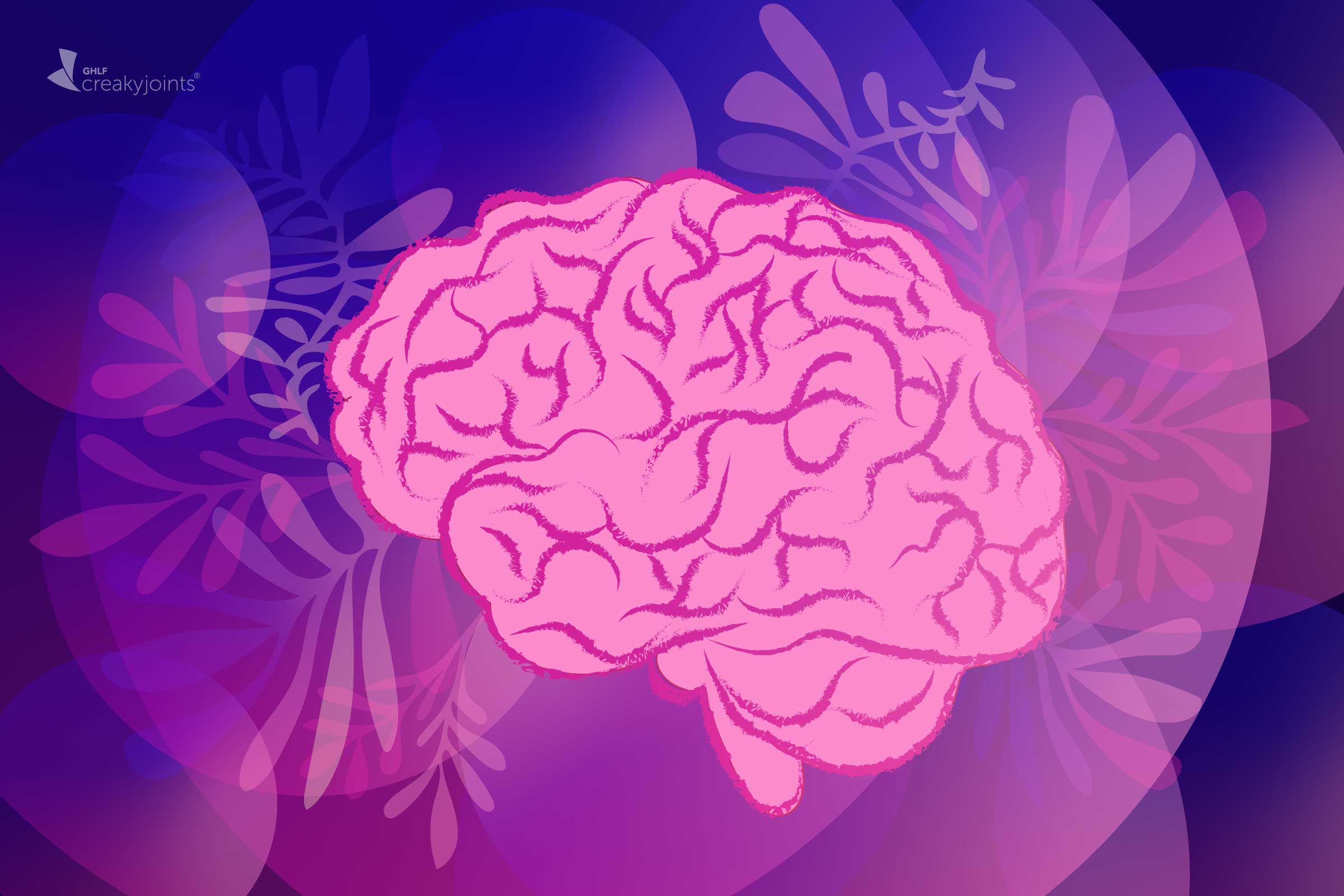
Inflammatory Arthritis Patients Who Use Mindfulness Have Less Fatigue
PDF) Is There a Brain/Heart Interaction in Rheumatoid Arthritis and Seronegative Spondyloartropathies? A Combined Brain/Heart Magnetic Resonance Imaging Reveals the Answer
Brain Fog And Rheumatoid Arthritis Stock Illustration - Illustration of inspiration, cute: 127651341
How chronic inflammation in rheumatoid arthritis affects brain pre
Collection X-ray Multiple Disease (arthritis,stroke,brain Tumor,gout,rheumatoid,kidney.. Stock Photo, Picture And Royalty Free Image. Image 31910458.
Rheumatoid Pachymeningitis: A Rare Complication of Rheumatoid Arthritis | The Journal of Rheumatology
 Rheumatoid arthritis: How chronic inflammation affects the brain
Rheumatoid arthritis: How chronic inflammation affects the brain





































Posting Komentar untuk "arthritis of the brain"